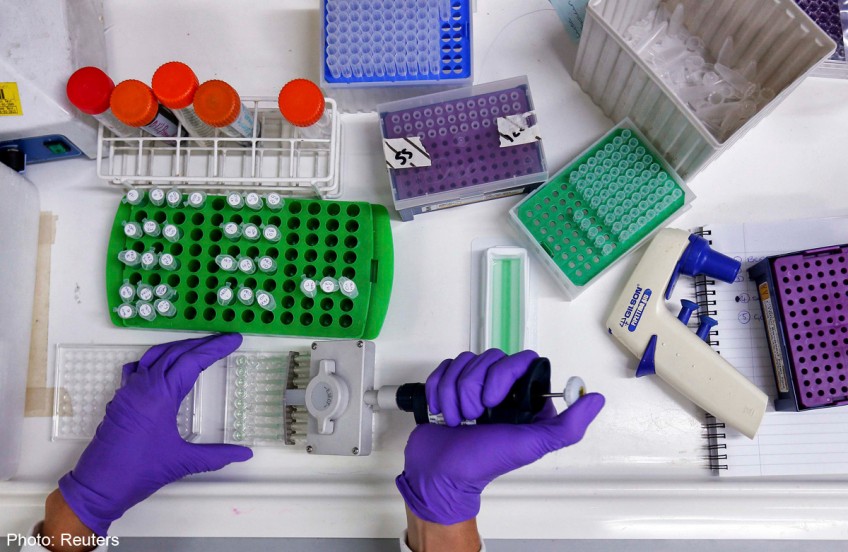Cancer could be a metabolic disease: researchers


TAIPEI, Taiwan - National Health Research Institute (NHRI) and National Tsing Hua University yesterday announced their latest research that suggested that cancer might be a metabolic disease like diabetes.
The research team published the first research in the world that has discovered the key to controlling cancer is genes metabolizing glucose and proved that a cancerous gene cannot metabolize glucose completely.
According to the NHRI, this is also the first research in the world to confirm the theory that cancer could be a metabolic disease.
Wang Hung-chun of the NHRI said that in 1920, some experts discovered that the way regular cells and cancer cells absorb glucose were different, so they proposed the theory that cancer might be metabolic disease.
However, according to the NHRI, no one could confirm the theory until the NHRI and National Tsing Hua University published the research to show that the key is JMJD5 gene.
Wang said that any foods consumed by human beings will be transformed into glucose and a regular cell can completely absorb and break down glucose, but cancer cells cannot carry out the same functions.
According to the research, Wang said that the normal operation of metabolism is closely related to the prevention of cancer, and cancer patients should avoid consuming excessive amounts of sugar in order to lower the risk of cancer cell growth.
New Research Could Contribute to Medicine Development
Ou Yen-chuan, a doctor at Taichung Veterans General Hospital, said that there is no medicine that targets prostate cancer treatment currently. If new medicines can be developed based on the research of glucose and cancer cells, it will provide more treatment choices for cancer patients.
Doctor Tu Shih-hsing of the Cathy General Hospital said that there are six different medicines that can be used to treat breast cancer, but some patients started to show signs of drug-resistance.
If new medicines can be developed continuously, Tu said, it will greatly benefit cancer patients.
Kuan Hsing-jien, president and distinguished investigator of the NHRI, said that this research can become a new strategy for experts to treat cancers and develop new medicines to stop cancer cells from taking away glucose in order to prevent the growth of cancer cells.